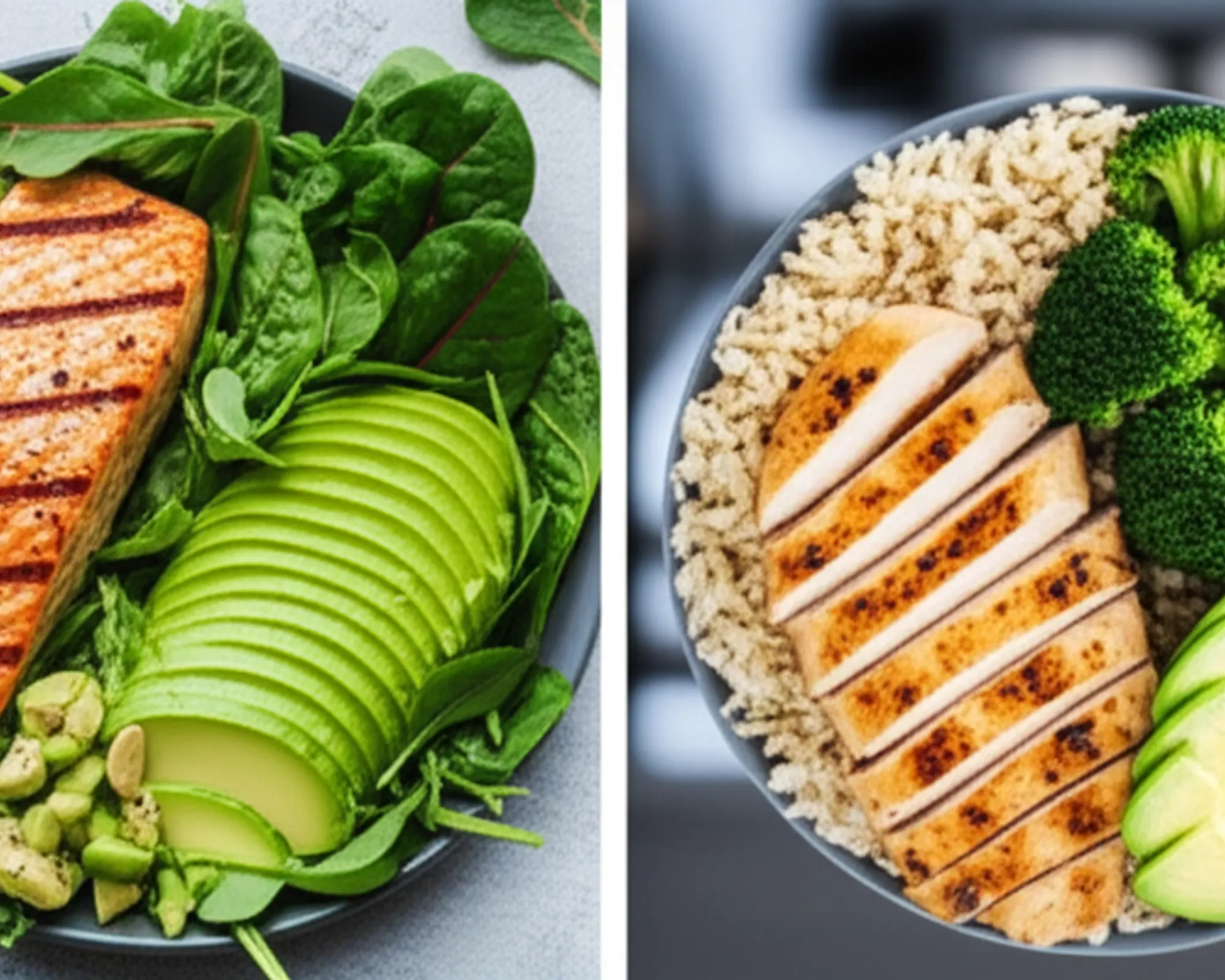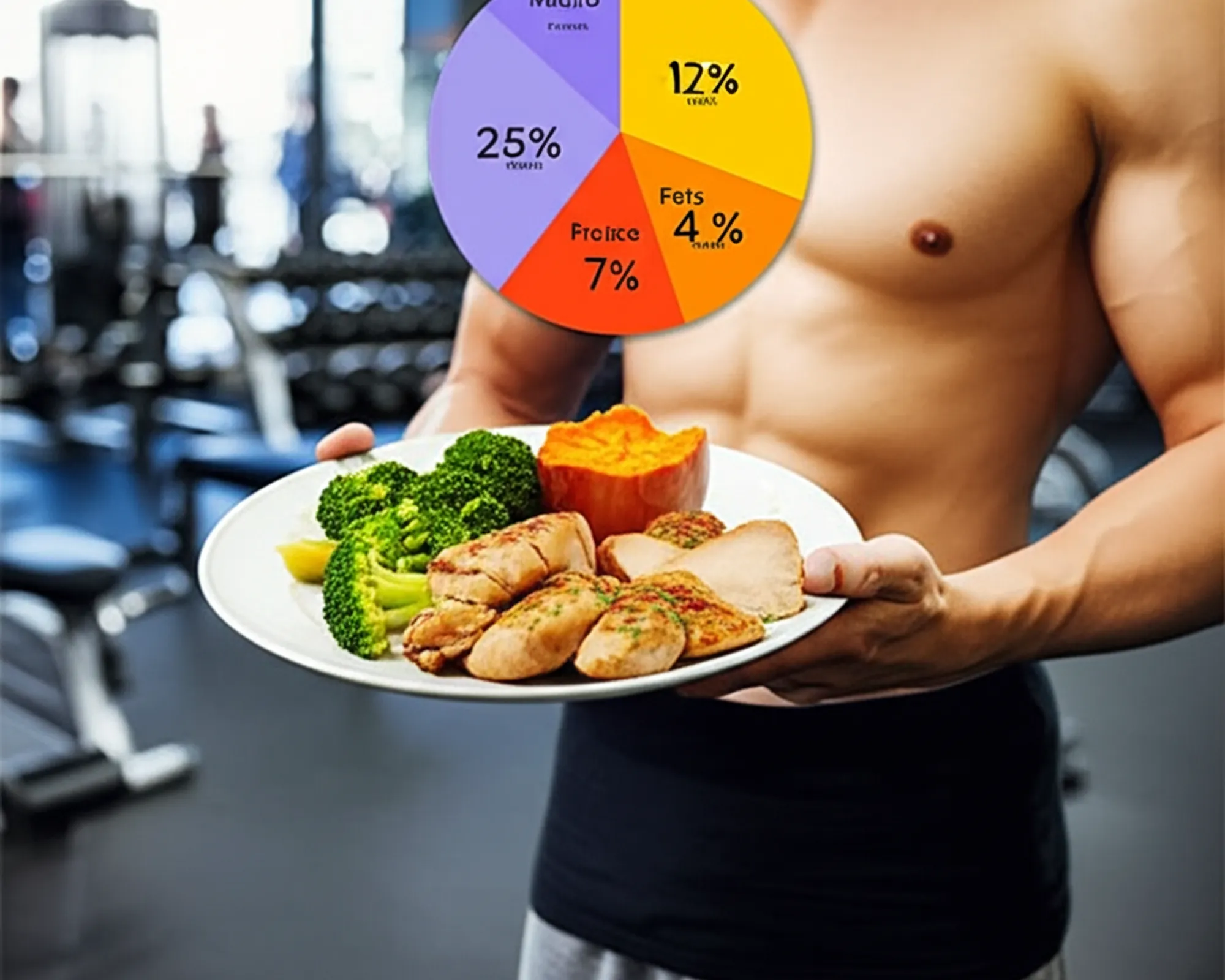Best Fat Sources for Gym Nutrition Plans

Understanding the role of fats in your gym nutrition plan is crucial for optimizing performance, recovery, and overall health. For far too long, dietary fats were unfairly demonized, leading many to adopt low-fat diets that often compromised nutrient intake and left individuals feeling unsatisfied. However, modern sports nutrition science has unequivocally highlighted the indispensable nature of healthy fats. They are not just an energy source; they are vital for hormone production, vitamin absorption, and maintaining cellular integrity. For anyone serious about their fitness goals, whether it's building muscle, losing fat, or enhancing endurance, incorporating the right types of fats into their diet is non-negotiable.
The Essential Role of Dietary Fats in Fitness
Fats play several critical roles in the body, especially for those with active lifestyles. Firstly, they are a concentrated source of energy, providing 9 calories per gram, more than double that of carbohydrates or protein. This makes them an efficient fuel source for prolonged exercise. Secondly, fats are crucial for the absorption of fat-soluble vitamins (A, D, E, and K), which are vital for bone health, immune function, and antioxidant protection—all critical for recovery and overall well-being. Thirdly, dietary fats, particularly cholesterol, are precursors to steroid hormones like testosterone and estrogen, which are essential for muscle growth, strength, and regulating metabolism. A diet too low in healthy fats can impair hormone production, leading to suboptimal gains and recovery. Lastly, fats contribute to satiety, helping you feel fuller for longer, which can be particularly beneficial for managing appetite and adhering to a calorie-controlled diet during fat loss phases.
Distinguishing Between Good and Bad Fats
Not all fats are created equal. It's important to differentiate between beneficial fats and those that should be limited. Generally, fats are categorized into saturated, unsaturated (monounsaturated and polyunsaturated), and trans fats.
- Saturated Fats: Found in red meat, butter, and full-fat dairy. While once strictly advised against, current research suggests moderate intake within a balanced diet is acceptable for most healthy individuals, especially if sourced from whole, unprocessed foods.
- Unsaturated Fats: These are the "healthy" fats.
- Monounsaturated Fats (MUFAs): Found in olive oil, avocados, and nuts. They are known for their heart-protective benefits and can help reduce inflammation.
- Polyunsaturated Fats (PUFAs): Include Omega-3 and Omega-6 fatty acids. Omega-3s, found in fatty fish, flaxseeds, and chia seeds, are renowned for their anti-inflammatory properties, brain health benefits, and role in recovery. Omega-6s are essential but often over-consumed in Western diets from vegetable oils; maintaining a healthy Omega-6 to Omega-3 ratio is important.
- Trans Fats: Artificially created through hydrogenation (found in some processed foods) and naturally occurring in small amounts in some animal products. Artificial trans fats should be avoided entirely due to their detrimental effects on heart health.
Top Healthy Fat Sources for Your Gym Nutrition Plan
1. Avocados
A powerhouse of monounsaturated fats, particularly oleic acid, avocados are incredibly versatile. They are also rich in fiber, potassium, and vitamins K, C, B5, B6, and E. Their creamy texture makes them a great addition to salads, smoothies, sandwiches, or simply enjoyed with a pinch of salt. Avocados contribute to satiety and provide sustained energy, making them excellent for pre- or post-workout meals.
2. Nuts and Nut Butters (Almonds, Walnuts, Cashews)
Nuts are convenient, nutrient-dense snacks packed with healthy fats, protein, fiber, and micronutrients like magnesium, zinc, and vitamin E. Almonds are rich in MUFAs, walnuts are an excellent source of Omega-3s (ALA), and cashews offer a good balance of fats with a slightly sweeter profile. Opt for raw or dry-roasted nuts and natural nut butters without added sugars or hydrogenated oils. Portion control is key due to their calorie density.
3. Seeds (Chia, Flax, Hemp)
These tiny powerhouses are loaded with Omega-3 fatty acids, fiber, and protein. Chia seeds absorb liquid and form a gel, making them great for puddings or thickeners. Flaxseeds (preferably ground for better absorption) are rich in ALA and lignans. Hemp seeds have a mild, nutty flavor and provide a good ratio of Omega-3 to Omega-6, along with complete protein. Sprinkle them on oatmeal, yogurt, salads, or blend into smoothies.
4. Olive Oil (Extra Virgin)
A cornerstone of the Mediterranean diet, extra virgin olive oil (EVOO) is primarily composed of monounsaturated fats. It's also rich in antioxidants and anti-inflammatory compounds. Use EVOO for salad dressings, drizzling over cooked vegetables, or in low-to-medium heat cooking. Its benefits are best preserved when not subjected to very high temperatures.
5. Fatty Fish (Salmon, Mackerel, Sardines, Trout)
These cold-water fish are arguably the best dietary sources of long-chain Omega-3 fatty acids: EPA (eicosapentaenoic acid) and DHA (docosahexaenoic acid). EPA and DHA are crucial for reducing exercise-induced inflammation, supporting cardiovascular health, improving brain function, and aiding muscle recovery. Aim for at least two servings per week. Wild-caught options are often preferred.
6. Whole Eggs
While eggs contain cholesterol, dietary cholesterol has been largely cleared of being a primary driver of blood cholesterol for most healthy individuals. The yolk is where the magic happens, containing healthy fats (including some saturated fat), fat-soluble vitamins (A, D, E, K), choline (important for brain and liver health), and lutein/zeaxanthin (for eye health). Eggs are a complete protein source and incredibly versatile for any meal of the day.
7. Dark Chocolate (70% Cacao or Higher)
A delicious way to incorporate healthy fats! High-quality dark chocolate is rich in monounsaturated fats, fiber, iron, magnesium, and powerful antioxidants. Choose varieties with at least 70% cacao content and minimal added sugar. Enjoy in moderation as a treat that also offers health benefits.
8. Coconut Oil (Use with Moderation)
Coconut oil is predominantly saturated fat, but it contains medium-chain triglycerides (MCTs), which are metabolized differently than other saturated fats. MCTs are rapidly absorbed and can be used as an immediate energy source. While some studies suggest benefits for energy and metabolism, its high saturated fat content means it should be consumed in moderation and as part of a varied diet, not as the sole fat source. It can be useful for higher-heat cooking due to its stability.
Incorporating Healthy Fats into Your Diet
Making healthy fats a staple in your gym nutrition plan is easier than you think:
- Add a quarter or half an avocado to your salads, sandwiches, or post-workout smoothies.
- Snack on a handful of mixed nuts or seeds between meals.
- Drizzle extra virgin olive oil generously over your vegetables, pasta, or salads.
- Incorporate fatty fish like salmon or mackerel into your dinner rotation at least twice a week.
- Use natural nut butters on whole-grain toast or with fruit slices.
- Sprinkle chia or flax seeds into your yogurt, oatmeal, or protein shakes.
- Don't shy away from whole eggs for breakfast or as a quick meal.
General Fat Intake Guidelines for Gym-Goers
For most active individuals and gym-goers, a healthy fat intake typically ranges from 20-35% of total daily calories. However, this can vary based on individual goals, activity levels, and dietary preferences. For example, some ketogenic diets might go much higher, while extreme endurance athletes might opt for slightly less. The key is to prioritize unsaturated fats while ensuring adequate intake of essential fatty acids (Omega-3s especially) and limiting artificial trans fats.
Conclusion
Fats are an indispensable macronutrient for anyone committed to a serious gym nutrition plan. They fuel your workouts, aid in hormone production, facilitate nutrient absorption, and support overall health and recovery. By focusing on nutrient-dense sources of healthy monounsaturated and polyunsaturated fats like avocados, nuts, seeds, olive oil, and fatty fish, you can optimize your body's performance, enhance recovery, and achieve your fitness goals more effectively. Embrace healthy fats, and give your body the essential fuel it needs to thrive.


